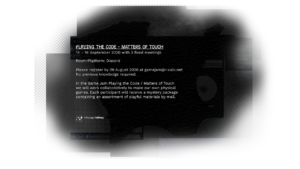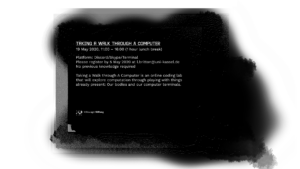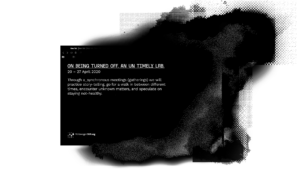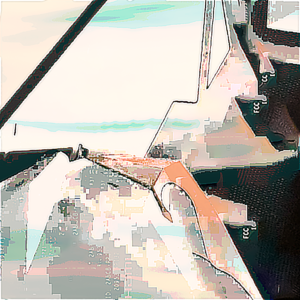W e hereby invite you to register for the upcoming Game Jam titled Playing the Code / Matters of Touch that the project Re-Coding Algorithmic Culture will host from September 14th to 16th 2020.
e hereby invite you to register for the upcoming Game Jam titled Playing the Code / Matters of Touch that the project Re-Coding Algorithmic Culture will host from September 14th to 16th 2020.
In Playing the Code / Matters of Touch we will work collaboratively to make our own physical games. Each participant will receive a mystery package containing an assortment of playful materials by mail.
In small groups, we will invent un_protocols of play and try to re-make algorithmic processes through touch, smell, sound. We will work with game making as a way to define rules, explore indeterminate outcomes and find out what else is possible.
This Game Jam will take place online on a dedicated Discord Server. We will have a shared online space where we can work in small groups. Groups will work in their own time, but please schedule in time for three meetings: Sept 14th, 10-12.30 CET (introduction), Sept 15th 10-11 CET (check-in), Sept 16th 10-11.30 CET (last meeting).
If you would like to take part, please register by sending an email to gamejam@r-calc.net until August 26th 2020. In this email, please send us your postal address so that we can make sure your mystery package arrives in time.
The project Re:Coding Algorithmic Culture has won a grant from the VW Foundation within the category ‚Original – isn’t it?’. Over the next 1.5 years, the project participants will investigate the question of how algorithmically based collections, classifications and interpretations of data can perpetuate existing social inequalities/ discrimination – and also challenge, if not redefine them. https://r-calc.net/
°^°^°^°^°
Best wishes
the Game Jammers



